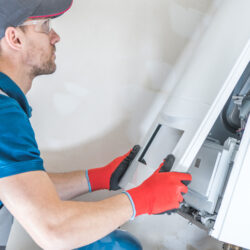Valves are one of the most critical components used in any industrial system that involves the flow of fluids. They play an essential role in controlling, regulating, and isolating fluids under different conditions of temperature, pressure, and chemical exposure. However, in industries that handle highly corrosive or toxic materials—such as chemical processing, petrochemicals, pharmaceuticals, and wastewater treatment ordinary metal valves often fail to deliver reliable, long-term sealing. Corrosion, leakage, and material degradation are common challenges in such environments.
To overcome these issues, PFA lined plug valves have become a trusted and effective solution. They are designed with superior lining materials like PFA (Perfluoroalkoxy) and PTFE (Polytetrafluoroethylene), which provide excellent chemical resistance and ensure leak-free operation even under extreme conditions. This blog explains how these valves work, why they are so reliable in harsh environments, and what makes them a smart choice for many industries.
Understanding PFA Lined Plug Valves
A PFA lined plug valve is a type of quarter-turn valve where the internal surfaces especially those in contact with the fluid are lined with PFA, a fluoropolymer known for its exceptional resistance to chemical attack. The body of the valve is usually made from cast iron, ductile iron, or stainless steel, and the internal metal parts are completely protected by the PFA lining.
PFA, short for Perfluoroalkoxy, combines the toughness of conventional plastics with the chemical resistance of PTFE. It has excellent non-stick properties, high resistance to corrosion, and can withstand high temperatures. Because of these qualities, a PFA lining prevents corrosion, scaling, and contamination, ensuring smooth fluid flow and minimal maintenance.
In simple terms, a PFA lined plug valve ensures that the metal components of the valve do not directly contact the corrosive media. This protection guarantees leak-free operation, longer service life, and higher reliability.
Construction and Working Principle
The design of PFA line plug valves is both simple and efficient. These valves have a cylindrical or tapered plug with a through-hole that aligns with the valve body when open, allowing fluid to pass through. When the plug is rotated by 90 degrees, the hole moves perpendicular to the flow, stopping the fluid movement completely.
The key feature lies in the lining PFA or PTFE which coats the inner surfaces and the plug. The lining acts as a protective barrier between the fluid and the valve body. During operation, the plug’s smooth, non-stick lining ensures tight sealing and prevents leakage. This makes the valve suitable for handling aggressive chemicals and high-pressure media.
Additionally, the precision machining and proper lining thickness maintain consistent torque and sealing pressure, ensuring leak-free performance over years of use.
Difference Between PFA and PTFE Lined Plug Valves
Both PFA and PTFE are fluoropolymers with excellent corrosion resistance, but they have some distinct characteristics:
-
PFA lined plug valve: Offers better mechanical strength and higher temperature resistance. It can handle continuous temperatures up to around 260°C. PFA’s flexibility and smooth surface make it ideal for dynamic sealing applications.
-
PTFE lined plug valve: Has outstanding chemical inertness and is suitable for a wide range of corrosive fluids. However, it is slightly less flexible than PFA and can be more prone to deformation at high temperatures.
Because of these differences, PTFE lined plug valve manufacturers and plug valve manufacturer in India often produce both types to meet different operational needs.
Key Benefits of PFA and PTFE Lined Plug Valves
The benefits of using PFA lined plug valves or PTFE lined plug valves in harsh industrial environments are many. Some of the main advantages include:
-
Excellent Chemical Resistance:
Both PFA and PTFE are highly resistant to strong acids, alkalis, and solvents. This makes them ideal for chemical and petrochemical plants where corrosion is a major concern. -
Leak-Free Performance:
The smooth surface of the lining provides a tight seal between the plug and the body, preventing any leakage even under pressure or temperature fluctuations. -
Smooth Operation:
The non-stick nature of the lining reduces friction and prevents material buildup, allowing for easy operation and consistent performance. -
Long Service Life:
The corrosion-resistant lining extends the valve’s life, reducing the need for frequent maintenance or replacement. -
Low Maintenance Costs:
Since these valves do not corrode or jam, maintenance requirements are minimal, resulting in cost savings over time. -
High Temperature Resistance:
A PFA lined plug valve can operate at high temperatures without losing its sealing properties, making it suitable for demanding process conditions. -
Versatility:
These valves can handle a variety of media, including acids, alkalis, gases, and toxic chemicals, making them useful across different industries.
Applications in Harsh and Corrosive Environments
The main purpose of using PFA line plug valves is to handle aggressive fluids safely. Industries where such valves are commonly used include:
-
Chemical Processing Plants: For handling acids, caustic solutions, and other reactive materials.
-
Petrochemical Industry: For controlling the flow of hydrocarbons, solvents, and other chemical compounds.
-
Pharmaceuticals: Where contamination-free and leak-free operation is essential.
-
Pulp and Paper Industry: For handling bleaching chemicals and other corrosive media.
-
Water Treatment Plants: For managing chlorine, sulfuric acid, and other chemicals used in purification processes.
-
Food and Beverage Industry: For applications requiring hygienic and corrosion-resistant valves.
In all these sectors, reliability and safety are top priorities. A PFA lined plug valve ensures both by providing a strong barrier against leaks and corrosion.
How Lined Plug Valves Maintain Leak-Free Performance
Leak-free operation is the most critical factor in valve performance. Here’s how PFA line plug valves achieve it:
-
Perfect Lining Bond: The PFA or PTFE lining is securely bonded to the metal body, ensuring no gaps or weak points.
-
Smooth Surface Finish: The non-stick surface prevents the adhesion of process materials, maintaining smooth operation.
-
Uniform Sealing Pressure: The plug is designed to maintain even pressure across the sealing surface, minimizing wear and ensuring tight sealing.
-
Corrosion Protection: Since the lining isolates the body from the fluid, there is no corrosion or pitting that could cause leaks over time.
-
Stable Performance in Temperature Variations: PFA and PTFE linings retain their flexibility and sealing capability even under fluctuating temperatures.
Quality and Standards in Manufacturing
A reliable plug valve manufacturer in India follows strict international standards to ensure the quality and durability of their lined plug valves. They use advanced molding and lining techniques to create a uniform protective layer inside the valve. The valves undergo various quality checks, including pressure testing, leak testing, and lining adhesion tests, before being dispatched for use.
PTFE lined plug valve manufacturers also ensure that the lining thickness is consistent and that the materials used are free from impurities. Proper inspection guarantees that every valve delivers reliable performance in even the harshest environments.
Choosing the Right Valve for Your Application
When selecting a lined plug valve, it’s important to consider the type of fluid being handled, temperature, pressure, and flow rate. PFA is generally better for high-temperature and highly corrosive media, while PTFE works well for general-purpose chemical resistance.
The valve size, end connection type, and maintenance requirements should also match the system design. Consulting with an experienced plug valve manufacturer in India ensures you get the best valve for your specific application.
Conclusion
In industrial systems where corrosion, chemical attack, and leakage are major concerns, a PFA lined plug valve offers the most reliable and cost-effective solution. Its PFA or PTFE lining acts as a robust protective shield, ensuring smooth operation, tight sealing, and extended service life even in harsh environments.
Whether used in chemical plants, refineries, or water treatment facilities, PFA line plug valves and PTFE lined plug valves guarantee safety, efficiency, and long-term durability. With continuous advancements in valve design and manufacturing standards, modern lined plug valves have become an essential choice for industries seeking reliable flow control and leak-free performance.





